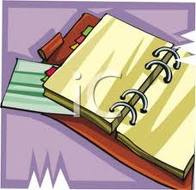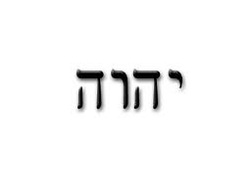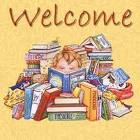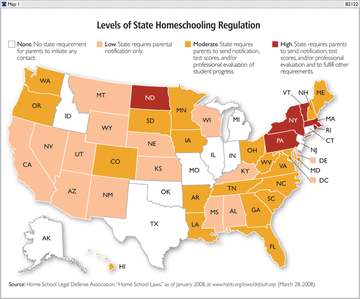Homeschooling Record Keeping Forms
Daily Log: https://acrobat.com/#d=BcuMwVc2O7kTdJSfN2F5Dg
Field Trip Log: https://acrobat.com/#d=m0fM1nZVywwbaSr-ykV*qQ
Reading Log: https://acrobat.com/#d=hAKXHE77br7oufmaaCtkRQ
Field Trip Log: https://acrobat.com/#d=m0fM1nZVywwbaSr-ykV*qQ
Reading Log: https://acrobat.com/#d=hAKXHE77br7oufmaaCtkRQ
Newly designed, I came up with a form for all you newbie homeschooling mamas . Along with the attendance record kept in the front of your binder or your child's, this is a daily log the children can fill in or you depending on age, of all the work they have done for the day. Just keep this in their binder. I have been working on getting a rhythm and I always feel as if I am starting over. I have to say this method has really saved me and kept me quite organized. It is also not very time consuming. Below are also some samples of curriculum that can help you design your Instruction Plan for the year. I will also be posting a sample of the quarterly reports and year end assessments.
Tips:
Tips:
- Keep a three ring binder for each child
- In the front keep the attendence form
- Inside keep the daily log form and make sure they put their name and date
- Dividers for all academic sections and also include a field trip section
- Also, include a reading log for any books read
- You can keep copies of some work in each divided sections for evaluation purposes should the district ever come knocking
- In your field trip section, just keep date, location, what was learned
Mama's Master Organizer

Please feel free to comment or suggest how this can be improved or send links if there is anything you want to add that would be helpful. Please feel free to email me: [email protected]. This is in no particular order. Print and go to town organizing your Master three ring binder. You can add dividers for color and make your own title pages. I will continue to add so keep coming back for updates. Bookmark me!
Attendence Forms for all the children for the year
Yearly IHIP (see sample below)
Quarterly Reports and Year end assesments
Also, testing preps and test for year end
Field Trip Logs
Report Cards
Grocery List
Menu Planner
Week at a Glance
Monthly Calendar
The Balance Sheet (work to do, home to do)
Chore List for each child
Telephone & Addresses
Greeting Card List
Goals/Objectives for each child for the school year
Goals for the family
Goals for me
Homeschool Planner (all the basic forms needed)
Unschooling Record Keeper (short and sweet)
NYS Homeschool Regulations
Babysitter Instructions
Report Cards
Monthly Budget
Recorded Absences
Emergency Information
Freezer Inventory
Pantry Inventory
Recipes
Prayer Journal & Request
Family Activity Planner
Breast Self Exam
Blog Idea/Updates
Family Planning, Pregnancy, and Female Health Charts
Spiritual Journaling
Free Executive Homemaker Planner
Child's Binder
Keep a binder for each child with samples of their work divided in sections
Also, reading and field trip logs
Attendence Records
Book Reports http://printablehomeschool.com/bookreport.html
Journal
Attendence Forms for all the children for the year
Yearly IHIP (see sample below)
Quarterly Reports and Year end assesments
Also, testing preps and test for year end
Field Trip Logs
Report Cards
Grocery List
Menu Planner
Week at a Glance
Monthly Calendar
The Balance Sheet (work to do, home to do)
Chore List for each child
Telephone & Addresses
Greeting Card List
Goals/Objectives for each child for the school year
Goals for the family
Goals for me
Homeschool Planner (all the basic forms needed)
Unschooling Record Keeper (short and sweet)
NYS Homeschool Regulations
Babysitter Instructions
Report Cards
Monthly Budget
Recorded Absences
Emergency Information
Freezer Inventory
Pantry Inventory
Recipes
Prayer Journal & Request
Family Activity Planner
Breast Self Exam
Blog Idea/Updates
Family Planning, Pregnancy, and Female Health Charts
Spiritual Journaling
Free Executive Homemaker Planner
Child's Binder
Keep a binder for each child with samples of their work divided in sections
Also, reading and field trip logs
Attendence Records
Book Reports http://printablehomeschool.com/bookreport.html
Journal
Sister Star's Hebrew Curriculum (LANGUAGE)

As part of our language study both for spiritual beliefs as well as homeschooling fulfillment, we have incorporated Hebrew. We found a wonderful curriculum that is so much fun, very easy to follow, and it is free! A wonderful and special homeschooling mama designed this awesome curriculum. She also has several shabbat games and activities specifically for children. The parents can learn right along side of the children. Her blog, Joyful Junction, is where you can find all this wonderful material and videos also. Below is the PDF file for
Hebrew Curriculum. Just print by section and incorporate a little bit each week. Have fun.
http://exploringhebrew.weebly.com/uploads/3/6/1/0/3610819/exploring_the_alephbeyt_course_051610.pdf
Hebrew Curriculum. Just print by section and incorporate a little bit each week. Have fun.
http://exploringhebrew.weebly.com/uploads/3/6/1/0/3610819/exploring_the_alephbeyt_course_051610.pdf
Scott Foresman Online Grammar and Writing Handbook 1-6

This is a perfect addition to your homestudies day. If you need something accessible and free this covers K-6
Two Excellent and Fun Supplemental Online Programs

One program I have used with my children and we both love is Time 4 Learning. This will cover your core subjects for primary school and it's very affordable on a monthly rate.
Core Learning is another online program for $10 per month for a subject. There are other rates that seem to be affordable enough and something that can really help supplemental. This would be great if your child needs more practive or a certain subject is not your forte.
Core Learning is another online program for $10 per month for a subject. There are other rates that seem to be affordable enough and something that can really help supplemental. This would be great if your child needs more practive or a certain subject is not your forte.
Sample IHIP - 4th Grade
SAMPLE IHIP - 4TH GRADE
INDIVIDUAL HOME INSTRUCTION PLAN NAME OF CHILD: ________________________ NYC Student ID: (optional)ADDRESS: ________________________ DOB: _____________ GRADE LEVEL: 4TODAY'S DATE:_______________ SCHOOL YEAR: 2009-2010 DATES FOR SUBMITTAL OF QUARTERLY REPORTS: 11/15/09, 1/30/10, 4/15/10, 6/30/10 _______will be using various methods/tools for 4th-grade instruction in all the subjects specified in Section 100.10 of the Regulations of the Commissioner of Education. The corresponding subtopics may include and are not limited to: ArithmeticReading and writing numbers, Roman numerals to C, Prime numbers less than 100, Prime factoring, Numeration systems, Subsets, Decimal and fraction equivalents, Addition and subtraction, Facts to 7 places, Multiplication and division facts to 144, 1-, 2-, and 3-digit multiplication problems, 2- and 3-digit dividend, 1-digit divisor problems, Meaning of mixed numbers, Finding simple averages, Geometric concepts, Customary and metric measurement, Time to the second, Problem-solving methods, Charts and graphs The English Language(Reading, Writing, Spelling) Silent and oral reading, Choral reading, Listening skills, Telephone skills, Making and accepting simple social introductions, Summarizing simple information, Listening to literature, Critical reading, Short stories, chapter books, poetry, plays, Spelling, Increasing dictionary skills, Cursive handwriting, Simple outlining, Writing letters and informal notes, Written and oral book reports, Creative writing, Developing skills in locating information, Increasing indexing skills, Developing encyclopedia skills, Utilizing parts of a newspaper Social Studies(U.S. History, Geography) Types of community life, History and development of the local state, Relation of the state to its region, nation, and the world, World cultures, Reasons for our laws, Regions of the world, Continents, Time zones, Earth's resources, Climatic regions of the world, Map skills: longitude, latitude, scale, Using a globe ScienceEnvironment of the local region, Biological organization, Classification systems, The insect world, The reptilian world, Plants and animals of the past, Structure of plants, Seeds, Ecosystems, Balance of nature, Human body, Weather's influences, Weather instruments, Climate, Cause of seasons, Earth and its history, Oceans and the hydrosphere, Air and water pollution, Magnets and electricity, Light and color, Solar system and the universe, Living in space, Scientific method and scientific inquiry Health/SafetyPersonal and mental hygiene, Dental health, The body and its functions, Skeletal and muscular systems, Care and proper use of the body, Principles of digestion, Basic food groups, Good nutrition habits, Diseases, Safety, Substance abuse Music/Visual Arts/Phys. Ed.Wide exposure to all forms of music, Piano keyboard, Arts and crafts, Structured group dance lessons (tap, jazz, lyrical) 3+ hrs. per week, Free play indoors and outdoors Instruction methods/tools may include and shall not be limited to: reference materials (atlas, dictionaries, globe, maps, encyclopedias, non-fiction books, videos, the internet), workbooks, worksheets, hands-on activities, experiments, projects, newspapers, magazines, frequent field trips, group activities, classic/contemporary literature, research, journal/narrative/essay/poetry writing, games, creative thinking, predicting/forecasting, gathering facts, written peer correspondence (pen pals), music CDs, CD ROMs, piano keyboard, abundant art supplies (clay, paint, crayons, pencils, sketchpads, felt, chalk, etc.), structured group dance classes and competitions, free play, conversations, and real life. Primary instruction to ________ will be provided by _____________ and _______________, her parents. Supplemental instruction will be provided by others, as necessary. ____________________________
Parent’s Signature
(Subject info obtained from Typical Course of Study - Grade 4 fromwww.worldbook.com. FIND YOUR GRADE LEVEL HERE!
INDIVIDUAL HOME INSTRUCTION PLAN NAME OF CHILD: ________________________ NYC Student ID: (optional)ADDRESS: ________________________ DOB: _____________ GRADE LEVEL: 4TODAY'S DATE:_______________ SCHOOL YEAR: 2009-2010 DATES FOR SUBMITTAL OF QUARTERLY REPORTS: 11/15/09, 1/30/10, 4/15/10, 6/30/10 _______will be using various methods/tools for 4th-grade instruction in all the subjects specified in Section 100.10 of the Regulations of the Commissioner of Education. The corresponding subtopics may include and are not limited to: ArithmeticReading and writing numbers, Roman numerals to C, Prime numbers less than 100, Prime factoring, Numeration systems, Subsets, Decimal and fraction equivalents, Addition and subtraction, Facts to 7 places, Multiplication and division facts to 144, 1-, 2-, and 3-digit multiplication problems, 2- and 3-digit dividend, 1-digit divisor problems, Meaning of mixed numbers, Finding simple averages, Geometric concepts, Customary and metric measurement, Time to the second, Problem-solving methods, Charts and graphs The English Language(Reading, Writing, Spelling) Silent and oral reading, Choral reading, Listening skills, Telephone skills, Making and accepting simple social introductions, Summarizing simple information, Listening to literature, Critical reading, Short stories, chapter books, poetry, plays, Spelling, Increasing dictionary skills, Cursive handwriting, Simple outlining, Writing letters and informal notes, Written and oral book reports, Creative writing, Developing skills in locating information, Increasing indexing skills, Developing encyclopedia skills, Utilizing parts of a newspaper Social Studies(U.S. History, Geography) Types of community life, History and development of the local state, Relation of the state to its region, nation, and the world, World cultures, Reasons for our laws, Regions of the world, Continents, Time zones, Earth's resources, Climatic regions of the world, Map skills: longitude, latitude, scale, Using a globe ScienceEnvironment of the local region, Biological organization, Classification systems, The insect world, The reptilian world, Plants and animals of the past, Structure of plants, Seeds, Ecosystems, Balance of nature, Human body, Weather's influences, Weather instruments, Climate, Cause of seasons, Earth and its history, Oceans and the hydrosphere, Air and water pollution, Magnets and electricity, Light and color, Solar system and the universe, Living in space, Scientific method and scientific inquiry Health/SafetyPersonal and mental hygiene, Dental health, The body and its functions, Skeletal and muscular systems, Care and proper use of the body, Principles of digestion, Basic food groups, Good nutrition habits, Diseases, Safety, Substance abuse Music/Visual Arts/Phys. Ed.Wide exposure to all forms of music, Piano keyboard, Arts and crafts, Structured group dance lessons (tap, jazz, lyrical) 3+ hrs. per week, Free play indoors and outdoors Instruction methods/tools may include and shall not be limited to: reference materials (atlas, dictionaries, globe, maps, encyclopedias, non-fiction books, videos, the internet), workbooks, worksheets, hands-on activities, experiments, projects, newspapers, magazines, frequent field trips, group activities, classic/contemporary literature, research, journal/narrative/essay/poetry writing, games, creative thinking, predicting/forecasting, gathering facts, written peer correspondence (pen pals), music CDs, CD ROMs, piano keyboard, abundant art supplies (clay, paint, crayons, pencils, sketchpads, felt, chalk, etc.), structured group dance classes and competitions, free play, conversations, and real life. Primary instruction to ________ will be provided by _____________ and _______________, her parents. Supplemental instruction will be provided by others, as necessary. ____________________________
Parent’s Signature
(Subject info obtained from Typical Course of Study - Grade 4 from
Typical Course of Study Kindergarten Curriculum Guide
Social Studies
* Meanings of holidays, traditions, and customs
* Understanding and appreciating other cultures
* Individual's role in family, home, school, and community
* Relationship of the individual to the group
* Work and jobs
* Safety rules and symbols
* Basic human needs
* Self-respect and self-awareness
* Awareness of others
* Location of home and school
* Diagram of home and school
Science
* Observation of everyday, familiar things
* Common animals and plants
* Interrelationships of animals and plants
* Classification of living things
* Farm animals
* Care of pets
* Like and unlike plants
* Indoor plants
* The sun: our principal source of energy
* Weather and seasons
* Temperature
* Light
* Colors
* Senses
* Earth, moon, stars, planets
* Simple measurement
* Beginning experimentation
Language Arts
* Phonics
* Choral reading
* Listening to literature, music, poetry
* Nursery rhymes, fairy tales, fables
* Social listening
* Constructing visual images while listening
* Oral communication skills
* Role play
* Following and giving directions
* Paraphrasing and summarizing
* Organizing ideas
* Experience stories
* Relating events and experiences using complete sentences
* Listening for correct speech habits and word usage
* Beginning writing process
* Manuscript handwriting
Health and Safety
* Personal hygiene
* Good eating habits
* Good grooming
* Care of teeth
* Major body parts
* Physical fitness
* Safety to and from school
Mathematics
* Simple counting to 20
* One-to-one relationship
* Concepts of more, less than, same
* Sequence of events
* Correspondence of quantities
* Ordinal-cardinal relationship
* Number-numeral relationship
* Recognition of basic sets
* Meaning of addition and subtraction
* Introduction to number line
* Estimation
* Elementary geometry (shapes)
* Calendar and clock
* Denominations of money
* Basic problem-solving strategies
* Basic chart and graph concepts
For each grade:http://www.worldbook.com/typical-course-of-study-kindergarten-curriculum-guide.html
* Meanings of holidays, traditions, and customs
* Understanding and appreciating other cultures
* Individual's role in family, home, school, and community
* Relationship of the individual to the group
* Work and jobs
* Safety rules and symbols
* Basic human needs
* Self-respect and self-awareness
* Awareness of others
* Location of home and school
* Diagram of home and school
Science
* Observation of everyday, familiar things
* Common animals and plants
* Interrelationships of animals and plants
* Classification of living things
* Farm animals
* Care of pets
* Like and unlike plants
* Indoor plants
* The sun: our principal source of energy
* Weather and seasons
* Temperature
* Light
* Colors
* Senses
* Earth, moon, stars, planets
* Simple measurement
* Beginning experimentation
Language Arts
* Phonics
* Choral reading
* Listening to literature, music, poetry
* Nursery rhymes, fairy tales, fables
* Social listening
* Constructing visual images while listening
* Oral communication skills
* Role play
* Following and giving directions
* Paraphrasing and summarizing
* Organizing ideas
* Experience stories
* Relating events and experiences using complete sentences
* Listening for correct speech habits and word usage
* Beginning writing process
* Manuscript handwriting
Health and Safety
* Personal hygiene
* Good eating habits
* Good grooming
* Care of teeth
* Major body parts
* Physical fitness
* Safety to and from school
Mathematics
* Simple counting to 20
* One-to-one relationship
* Concepts of more, less than, same
* Sequence of events
* Correspondence of quantities
* Ordinal-cardinal relationship
* Number-numeral relationship
* Recognition of basic sets
* Meaning of addition and subtraction
* Introduction to number line
* Estimation
* Elementary geometry (shapes)
* Calendar and clock
* Denominations of money
* Basic problem-solving strategies
* Basic chart and graph concepts
For each grade:http://www.worldbook.com/typical-course-of-study-kindergarten-curriculum-guide.html

